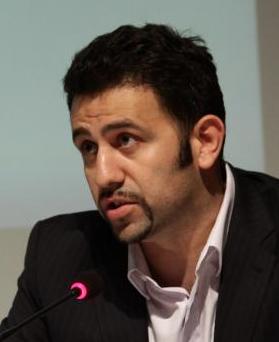I had some very recent discussions about the new emerging business models, based on storage. Storage will totally change the way we approach consumption and will create new models and services around it.
In my view storage will bring a big revolution into the smart grid space/utility market, identical to the one that RAM (Random Access Memory) brought in the Computer Architecture, back in 70’s. The ability to store and manage capacity in an optimal way, is a great advantage to any multi-variable system (Electricity, Fluid Mechanics, Logistics, Sales, etc)
Storage will give great power to the local users ie. Prosumers (energy producers and consumers at the same time) and various business models will be deployed around them. Still, many moving business parts are around and still Utilities, DSOs and Regulators are trying to position themselves, in terms of pricing, regulations, policies or even to take lead advantage of the first mover. Innovation and especially incremental innovation that has end-users inside, is the one that pushes things forward. And especially in a traditional slow moving industry (utility) where a big digital transformation is about to begin (already present in some countries and local markets).
Prosumers will have power (business and data power, prosumers will own their personal digital data !) to manage/monitor/evaluate capacity and with the addition of current digital technologies (mobile apps, a bit of sharing economy, SaaS platforms, analytics, AI, IoT frameworks, etc) various disruptive business models will be tested. No-one knows exactly right now which one will be the dominant one and which will scale up fast. Pricing, tariffs, regulations, are somehow part of the strategic game and will be used by Utilities and DSOs to position themselves.
A big questions is WHO owns storage ? 1) the consumer ? is it really educated and engaged to use it thoroughly ? 2) The DSOs ? primarily for balancing and frequency regulation but this requires automatic control of the battery (or strong consumer commitment) and new financial models for subsidizing storage installations and 3) the utility ? for supporting new Prosumer DR and DMS functionalities (I call it Prosumer Demand Response -> PDR) and for load shifting… still many questions to be answered
However, the Prosumer will be in the middle (still Home automation has some years ahead). Will be the one that has to be engaged with the local “micro-grid” system and the one that could support some disruptive models. ie to sell its selected capacity on a “on demand” basis to EVs (neighbors) with a charger outside its house and a POS for online payments over Paypal; this can be supported with social apps and sharing platforms (storage marketplace). Of course pricing will be important and will depend on other prices for the grid.
Another model for the utilities would be the use of EVs as a leasing to the utility customers (Uber-like) and by getting credits (by charging the EV to specific spots based on the utility signals) to earn discounts in the home utility bill (provided that the user is a customer of the same utility). It happens that my company works on these specific scenarios (over game mechanics and consumer engagement in a larger sense) and still we think that innovation will pop up from these small human-oriented disruptions…these will push utilities to adopt things, new things…
Hence, Prosumer business models are an important part of the utility digital transformation process and the consumer will soon be a romantic definition in dictionaries. All we need is customer education, awareness and to drive the correct engagement to the correct target groups that will lead disruption (Pareto principle)
 v.n.
v.n.